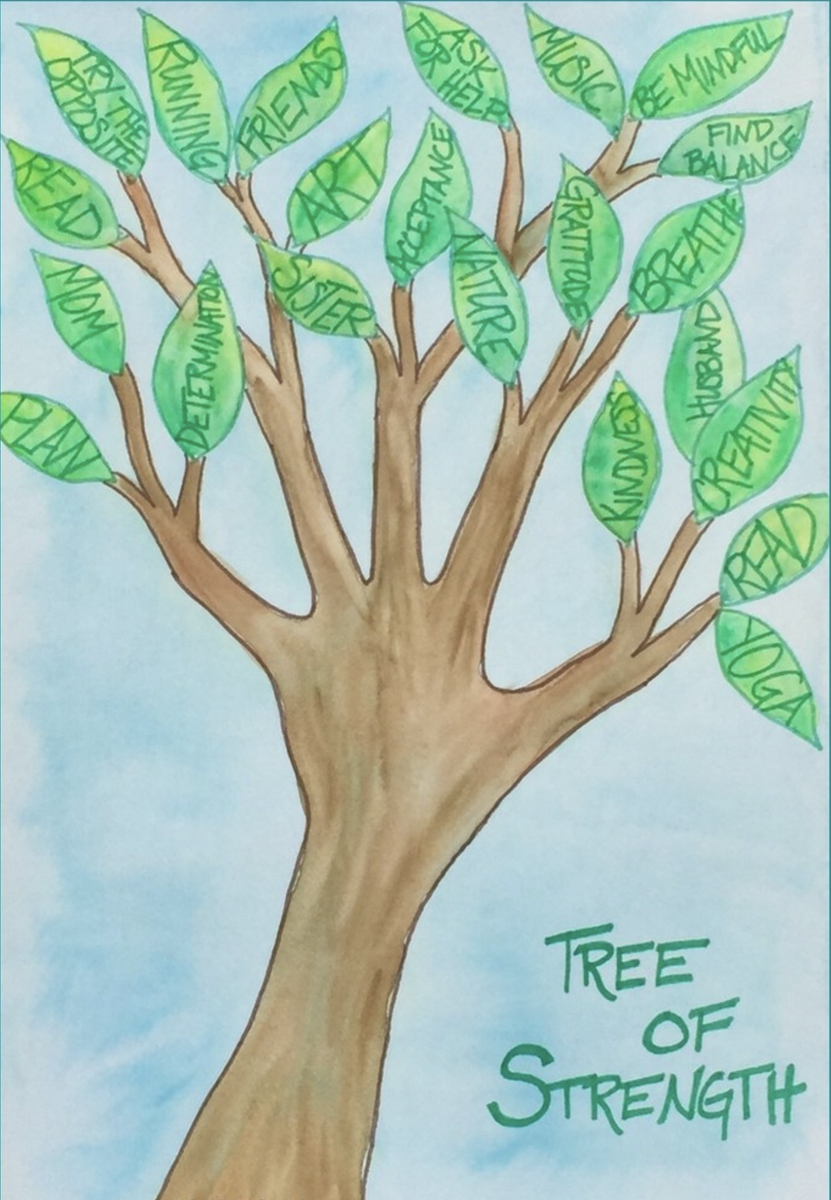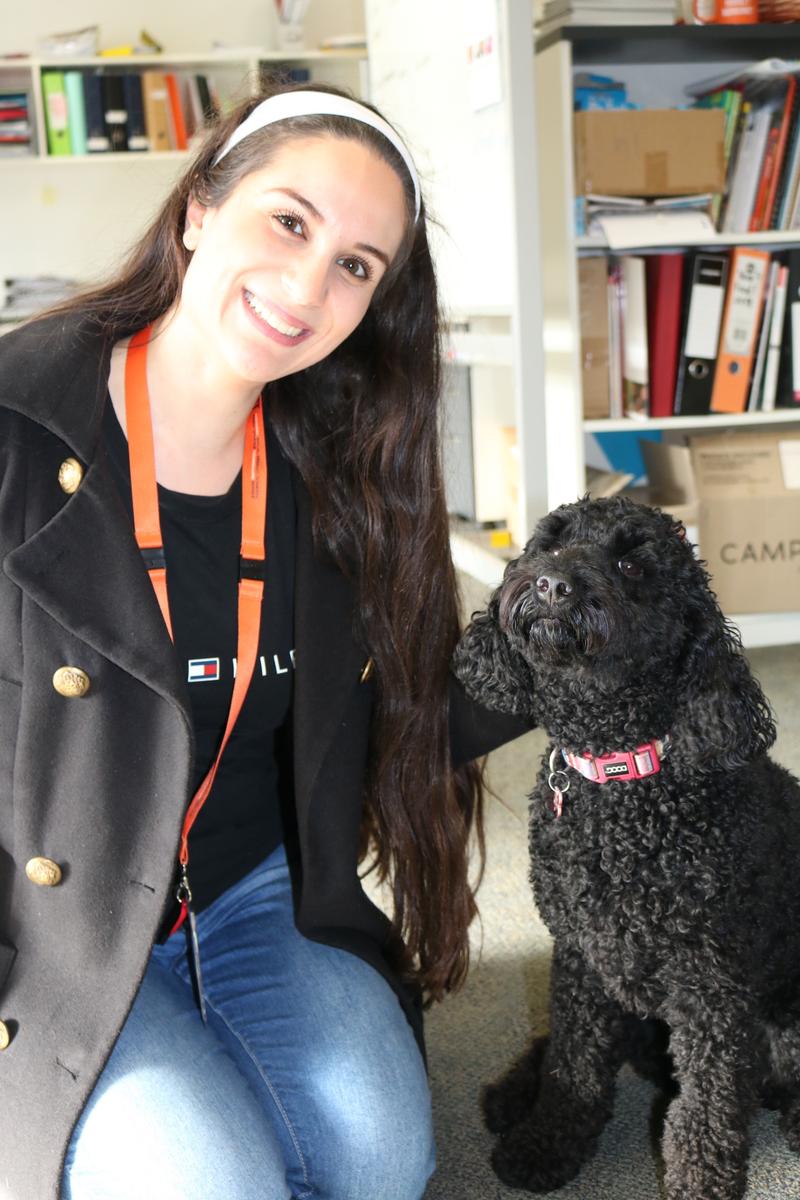Wellbeing

Talking Canvas - Art Therapy
This week we were excited to kick off 'Talking Canvas', an expressive arts group that focuses on wellbeing, stress management and self awareness.
We began the session with a mindfulness exercise to encourage relaxation and then moved into creating our own unique 'tree of strength'. The purpose of this activity was to think about what personal strengths, coping strategies and supports have helped us get through difficult times.
The students used their arm to trace the outline of a tree trunk and fingers to trace the branches. The students were then asked to draw leaves on their tree and write down their coping strategies on each leaf.
Each tree was so unique and we were able to share our experience of the activity, highlighting how resilient we can be in the face of adversity! The art work can serve as a reminder of what to do and who to reach out to when we are struggling. Some of the strategies included time in nature, friends, family, reading, pets and yoga.
I am looking forward to welcoming the students back again next week for another calming, fun and insightful activity!
Shelly Morrison
DSC Wellbeing student
Things to Make You Smile…and think!
During this time of challenges due to COVID-19 we thought it could be good to share some of the positive events/news/videos going around.
A different kind of birthday celebration:
Erasing Hate:
The Present:
Ziggy's Magic Touch: The Benefits of School Dogs
As one of the wellbeing students at Doncaster Secondary College, I had the pleasure of taking Ziggy, who is one of the school dogs, out for the day to my counselling sessions.
A lot of my students absolutely love dogs, so I asked them if they would like me to bring Ziggy along to our sessions. As their eyes lit up with excitement and joy, they said yes!
I noticed that Ziggy had such a positive impact in the therapeutic setting. During the counselling sessions, I realised my students were much more relaxed as they were talking to me. One of the students verbalised whilst patting Ziggy, “I feel so calm right now, dogs make everything feel better.”
In comparison to when Ziggy is not in the therapeutic space, I noticed Ziggy’s presence created more comfort in the environment, which helped my students open up about difficult situations they had been experiencing.
My shy students who find it hard to open up were feeling a lot more open to disclosing things to me in Ziggy’s presence.
The excitement of having Ziggy in the space helped reduce the students' anxiety, and helped them regulate their emotions. Ziggy’s presence helped increase the therapeutic relationship between the students and I, which is very important because the stronger the therapeutic relationship, the more effective therapy will be. This will then contribute to more change and positive outcomes.
Ziggy was like magic, it was as though he had healing powers which helped the students self-soothe, as Ziggy provided a sense of safety and security in the space. The benefits of having a school dog is tremendously powerful and positive!
Nikelah Khouri, Student Wellbeing Team
Embracing a new normal in ourselves and communities
This article was originally published in Generation Next on 5 June, 2020
As COVID-19 restrictions are gradually lifted across Australia and we emerge from months of isolation, it’s important to note that we have passed the threshold of time required to establish new habits.
Research shows that it takes between 30 and 60 days to establish a new habit or to stop a bad habit, intentionally or coincidentally. That means the things we have been doing, that we didn’t do before, will be easy to keep doing, if they are good for us.
Similarly, if we started or expanded on unhelpful or unhealthy behaviours while in isolation it will be hard to revert back to pre-isolation levels, though the feeling that we are entering a new normal may for some make it easier to break any negative habits we may have fallen into.
We have the opportunity then to look back before we look forward and ask some important questions around improving health and wellbeing for ourselves and those around us:
- What am I now doing that I want to continue doing?
- What do I want to stop doing that I’ve now started doing?
- What behaviours that I did before isolation, that I stopped, do I want to not take up again?
- What new behaviours, that I’ve never done before, do I now want to begin?
The COVID-19 experience will have taught people different things, but for almost all of us it has shown than we can quickly change our daily routines.
Some of us slept more, watched more TV, played more games or engaged more on social media; some cooked more, engaged more with those they live with, found creative ways to exercise…more



